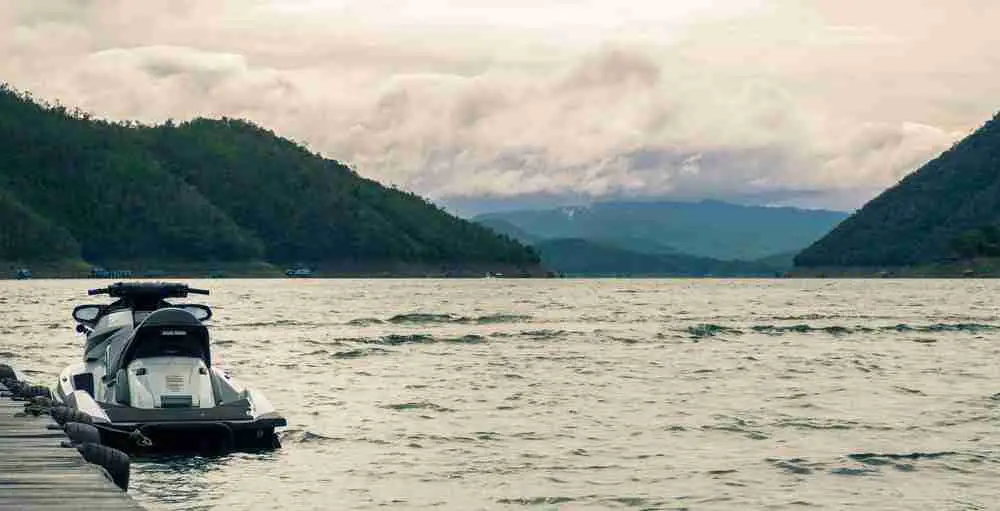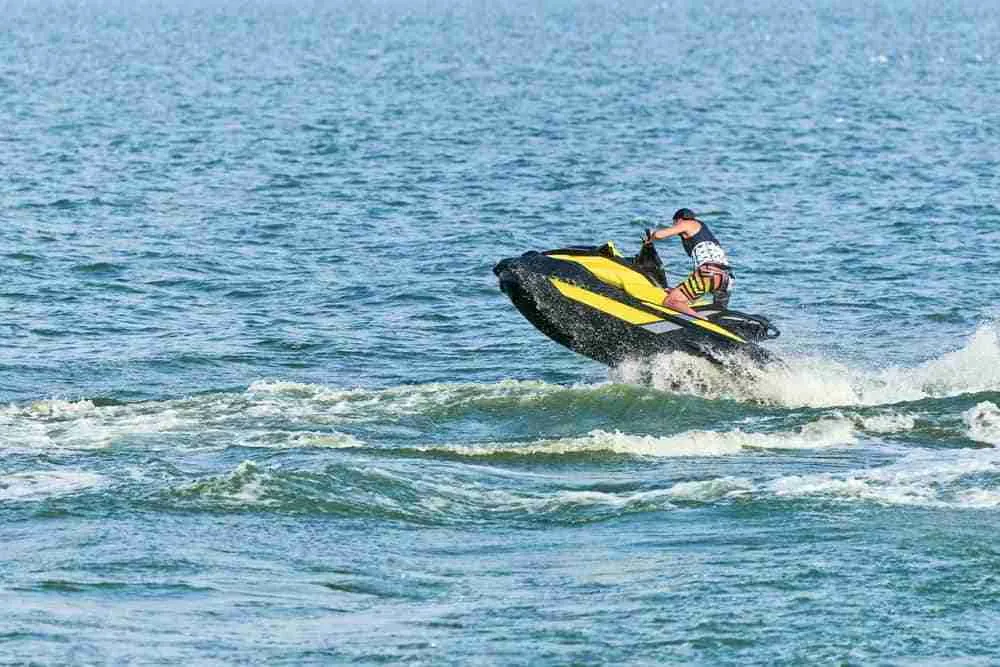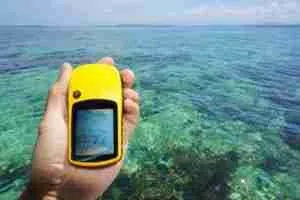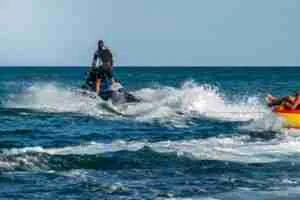Have you ever wondered whether it’s best for you to ride your jet ski in the saltwater, or retreat to staying in lakes and rivers?
Well, there are numerous factors that come into play here.
In most cases, jet skis are best ridden in freshwater environments for beginners and those without the physical ability to handle small waves and swell. Riding a jet ski in the open ocean is best tackled by more experienced riders with larger, performance-orientated watercraft.

In this guide, I’ll go a little deeper on this topic to help you get the most of where you are today in this journey of PWC ownership.
Let’s begin.
Jet Skis: Freshwater vs Saltwater
One of the key reasons why I often recommend freshwater riding over salt water riding isn’t just the fact that the surface is significantly flatter, and you’re less likely to get stranded, it’s actually for longevity. Salt water is quite corrosive even to modern-day jet skis. This is why their engine hours are quite short (100 to 200 hours) because that salt really finds its way into your engine bay.
So if you’re new to jet ski riding and you have a limited budget, then I’d try to stick to freshwater environments as much as possible. Sure – you’ll still have to wash out your engine but it’ll be a brief wash without the need for products such as Saltaway.
Now, let’s look into other reasons why you’d want to avoid the ocean on your PWC, at least for now.
Easier to Get Help
When you’re starting out as a beginner with a jet ski, there is a sense of nervousness towards the day ahead. You’ll check that drain plug 3 times and hope that no one’s paying attention to you as you unload at the boat ramp.
If you do get stuck out there in the waterways, then it’s far easier to get some assistance in freshwater environments than salt water. You won’t have tide or current, though in a river system you may drift slowly downstream but it’s nothing like the open ocean.
Waterside Camping
One of the most wonderful things about jet ski ownership is the camping ability. You can pull up at one of the hundreds of river-side camping areas around the country and stay for a few nights and really enjoy some time away.
It’s hard to beach a jet ski in saltwater and leave it parked up overnight securely. It’s not just theft that you have to worry about either, since the tidal movements could see your jet ski beached or in deep water and dragging anchor. This also brings us to the next point…
Towing Tubes and Skiers
I’d always get a fear of towing tubes in saltwater and my passengers being attacked by a shark or crocodile if they fall off while the jet ski circles around. This is a key reason why freshwater is so much better. It’s not just this as well, since the swell/chop is much less meaning they’re less likely to fall off.
You’ll also find that freshwater is slightly less corrosive to metals and plastics. If you’re seeking to get more than one season from your gear, then aim for the nearby lake or river.
Less Weather Influence
As I partially just mentioned, you won’t be so impacted by the swell and small waves in freshwater environments. Even if you get a thunderstorm rolling through, you’ll be able to get some shelter pretty easily. Let’s not forget sun protection! When you’re out there in the middle of the day, having a break under a shady tree is the perfect escape.
In Summary
Yeah…I’m biased but I also like to enjoy my days out there on the waterways and not have salt water coming out of my nostrils that evening. Plus I want my PWC to retain its value and really be able to get the most hours out of my investment.
So it’s freshwater for me (most of the time…).
Stay safe and I’ll catch you out there!



![29 Best Jet Ski Accessories [#17 is Awesome]](https://www.jetskiadvice.com/wp-content/uploads/2020/05/Jet-Ski-Accessories-300x200.jpg)
![7 Best Jet Ski Life Jackets That Fit Well [2022 Guide]](https://www.jetskiadvice.com/wp-content/uploads/2020/05/Jet-Ski-Life-Jacket-GUide-300x200.jpg)



